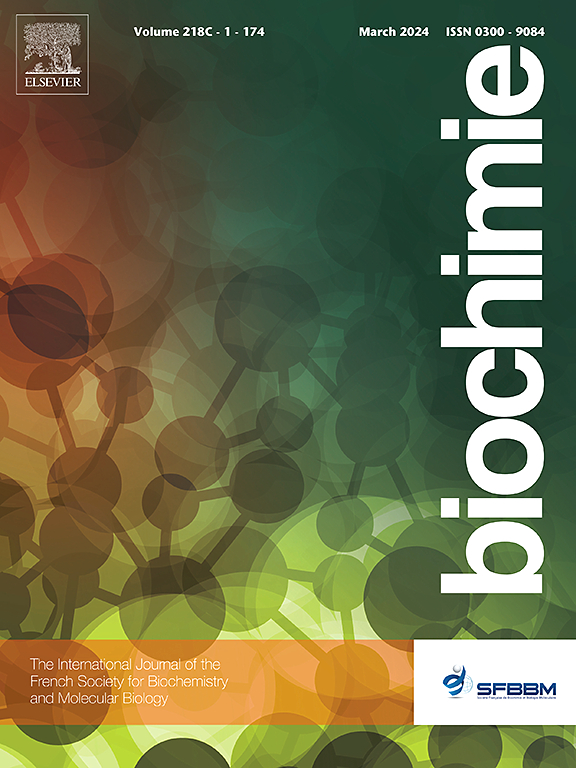Metformin's anticancer odyssey: Revealing multifaceted mechanisms across diverse neoplastic terrains- a critical review
IF 3
3区 生物学
Q2 BIOCHEMISTRY & MOLECULAR BIOLOGY
引用次数: 0
Abstract
Metformin, initially prescribed as an oral hypoglycemic medication for type 2 diabetes, has recently gained attention for its potential anticancer effects. Its history dates to 1918, when guanidine, a component of the traditional European herb Galega officinalis, was found to reduce glycemia. This review precisely examines the mechanisms underlying Metformin's anticancer effects across various neoplastic conditions. This investigation explores the complex interactions between metformin and major signaling pathways associated with carcinogenesis, including AMP-activated protein kinase (AMPK), mTOR, and insulin-like growth factor (IGF) pathways. The review emphasizes Metformin's diverse effects on angiogenesis, inflammation, apoptosis, and cellular metabolism in cancer cells. Additionally, new data on metformin's capacity to alter the tumor microenvironment and enhance immune surveillance systems against cancer are examined. The review underscores Metformin's potential for repurposing in oncology, emphasizing its clinical relevance as an adjuvant therapy for various cancers. The review provides insightful information about the complex anticancer mechanisms of metformin by combining data from preclinical and clinical studies. These findings not only broaden our knowledge of the effects of metformin but also open new avenues for oncology research and treatment developments.
二甲双胍的抗癌奥德赛:揭示不同肿瘤地形的多方面机制-一项重要评论。
二甲双胍最初是作为治疗2型糖尿病的口服降糖药,最近因其潜在的抗癌作用而受到关注。它的历史可以追溯到1918年,当时人们发现欧洲传统草药加勒加(Galega officinalis)中的一种成分胍可以降低血糖。这篇综述精确地检查了二甲双胍在各种肿瘤条件下的抗癌作用机制。本研究探讨了二甲双胍与致癌相关的主要信号通路之间的复杂相互作用,包括amp活化蛋白激酶(AMPK)、mTOR和胰岛素样生长因子(IGF)通路。这篇综述强调了二甲双胍对肿瘤细胞血管生成、炎症、凋亡和细胞代谢的多种作用。此外,二甲双胍改变肿瘤微环境和增强癌症免疫监测系统的能力的新数据进行了检查。该综述强调了二甲双胍在肿瘤学中的潜力,强调了其作为各种癌症辅助治疗的临床相关性。本综述通过结合临床前和临床研究数据,对二甲双胍复杂的抗癌机制提供了有见地的信息。这些发现不仅拓宽了我们对二甲双胍作用的认识,而且为肿瘤研究和治疗发展开辟了新的途径。
本文章由计算机程序翻译,如有差异,请以英文原文为准。
求助全文
约1分钟内获得全文
求助全文
来源期刊

Biochimie
生物-生化与分子生物学
CiteScore
7.20
自引率
2.60%
发文量
219
审稿时长
40 days
期刊介绍:
Biochimie publishes original research articles, short communications, review articles, graphical reviews, mini-reviews, and hypotheses in the broad areas of biology, including biochemistry, enzymology, molecular and cell biology, metabolic regulation, genetics, immunology, microbiology, structural biology, genomics, proteomics, and molecular mechanisms of disease. Biochimie publishes exclusively in English.
Articles are subject to peer review, and must satisfy the requirements of originality, high scientific integrity and general interest to a broad range of readers. Submissions that are judged to be of sound scientific and technical quality but do not fully satisfy the requirements for publication in Biochimie may benefit from a transfer service to a more suitable journal within the same subject area.
 求助内容:
求助内容: 应助结果提醒方式:
应助结果提醒方式:


